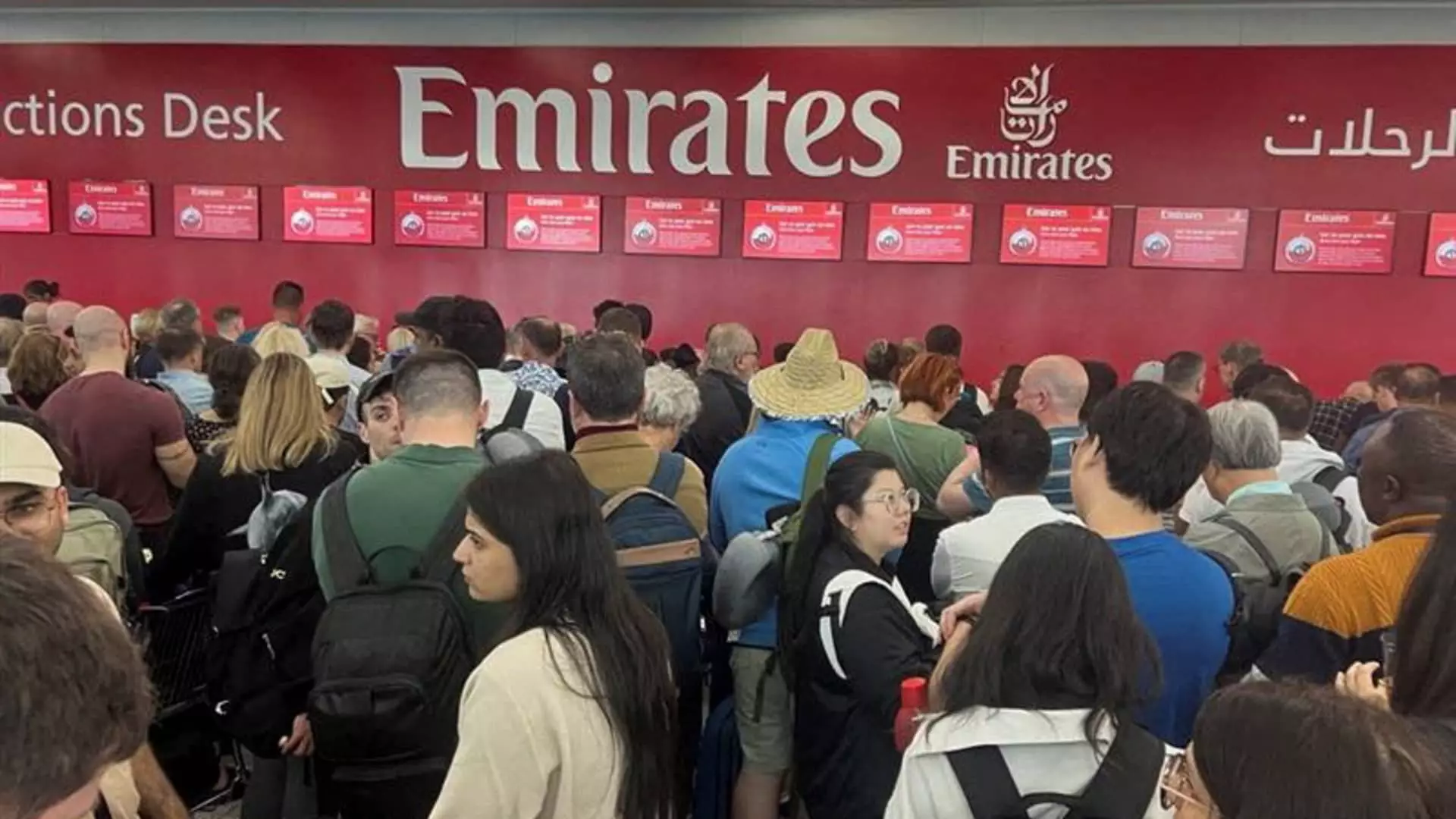Tim Clark, the CEO of Emirates airline, recently issued an apology letter to customers after historic rains in the United Arab Emirates caused chaos and mayhem at Dubai’s airport. Hundreds of flights were grounded, leaving thousands of customers stranded. In the letter published on the airline’s website, Clark expressed his sincere apologies to every affected customer for the disruption in their travel plans. He acknowledged the shortcomings of the airline’s response, recognizing the frustration caused by congestion, lack of information, and confusion in the terminals. The long queues and wait times were deemed unacceptable.
The airline’s service hub at Dubai Airport remained open during the crisis. However, flooded roads hindered the transportation of customers, pilots, cabin crew, and airport employees to the airport, as well as the movement of essential supplies. Dozens of flights were diverted, and nearly 400 flights had to be canceled or delayed over the following days due to staffing and supply shortages. Emirates urged travelers not to come to the airport unless for emergency situations and suspended check-ins, ticket sales, and connecting flights to Dubai.
Social media was flooded with posts from angry customers who received no help from Emirates staff and struggled to contact the company. Many passengers found themselves waiting for hours on canceled flights or in crowded areas in the airport. Some travelers reported being stranded at the airport for over 20 hours, while others had to book their own return home after being left without assistance from the airline.
Despite the challenges faced, Clark mentioned that Emirates deployed over 100 employee volunteers to assist disrupted customers at Dubai Airport. They prioritized medical cases, elderly individuals, and vulnerable travelers. The airline provided over 12,000 hotel rooms and issued 250,000 meal vouchers to affected customers in Dubai. As of Saturday, Emirates had managed to restore its regular flight schedules. However, there were still over 30,000 pieces of luggage waiting to be returned to customers.
The situation faced by Emirates during the flood highlighted the importance of efficient crisis management and communication. It is crucial for airlines to have solid contingency plans in place to address unforeseen circumstances that may disrupt travel operations. Moving forward, Emirates and other airlines can learn from this experience by implementing better strategies to handle similar crises in the future.
While Emirates faced significant challenges during the recent floods in the United Arab Emirates, the proactive response from the CEO and the airline’s efforts to assist affected customers reflect a commitment to customer service and operational excellence. By acknowledging the shortcomings and taking steps to rectify the situation, Emirates aims to rebuild trust with its customers and ensure smoother travel experiences in the future.

